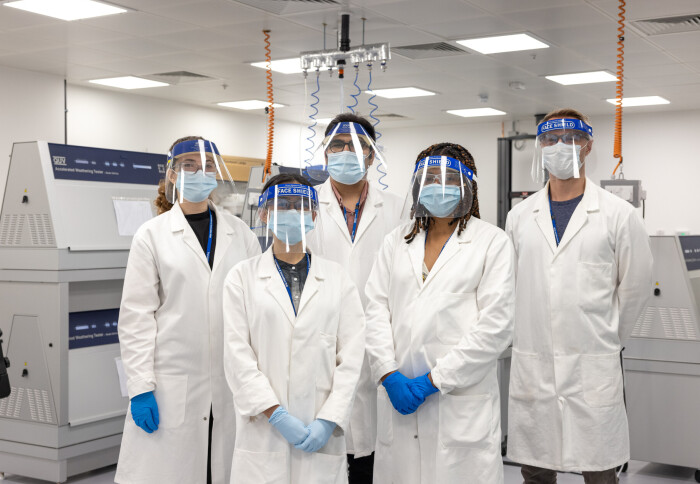Polymateria raises £20 million to scale biodegradable plastic technology

Polymateria
Polymateria, a scale-up based at Imperial’s White City Campus, has received £20m Series B funding to scale its tech for making plastics biodegradable.
An estimated 32% of plastic ends up as leakage globally from the waste collection system, a problem Polymateria aims to address using a technology that attracts microbes to biotransform products such as plastic bags and packaging if they enter the natural environment, without leaving behind microplastics or harmful residues.
The technology allows manufacturers to control the lifespans of their plastic products, ensuring they remain functional long enough for their intended use, while importantly the plastics can still be recycled, an outcome that remains the intended method of disposal.
Our mission to develop more credible and scalable scientific solutions to address the world's plastic pollution pandemic has benefitted hugely from being part of Imperial’s ecosystem. Niall Dunne CEO of Polymateria
The company will use the funding from a round led by Singapore-based impact private equity fund ABC Impact and sustainable chemical company Indorama Ventures to accelerate the commercialisation of its technology globally including in Asia.
Lee Davy-Martin, Co-Founder and Board Member of Polymateria, said: “I’m tremendously excited to be embarking on the next step of Polymateria’s journey. We founded Polymateria to make a real difference to one of the world’s biggest environmental challenges. With the backing of investors like ABC Impact and Indorama Ventures, we are well on the way to achieving our mission.”
Imperial ecosystem
The company will also invest in its research and development facility at Imperial’s Translation & Innovation Hub (I-HUB), a co-location facility for researchers and businesses at the heart of the emerging White City Innovation District.
Before moving to its own space at the I-HUB, Polymateria began at the Imperial’s White City Incubator, which provides office and lab space, and access to an entrepreneurial community. Polymateria’s CEO Niall Dunne said then: “Our mission to develop more credible and scalable scientific solutions to address the world's plastic pollution pandemic has benefitted hugely from being part of Imperial’s ecosystem.”
Photo: Thomas Angus
Article text (excluding photos or graphics) © Imperial College London.
Photos and graphics subject to third party copyright used with permission or © Imperial College London.
Reporter
David Silverman
Communications Division